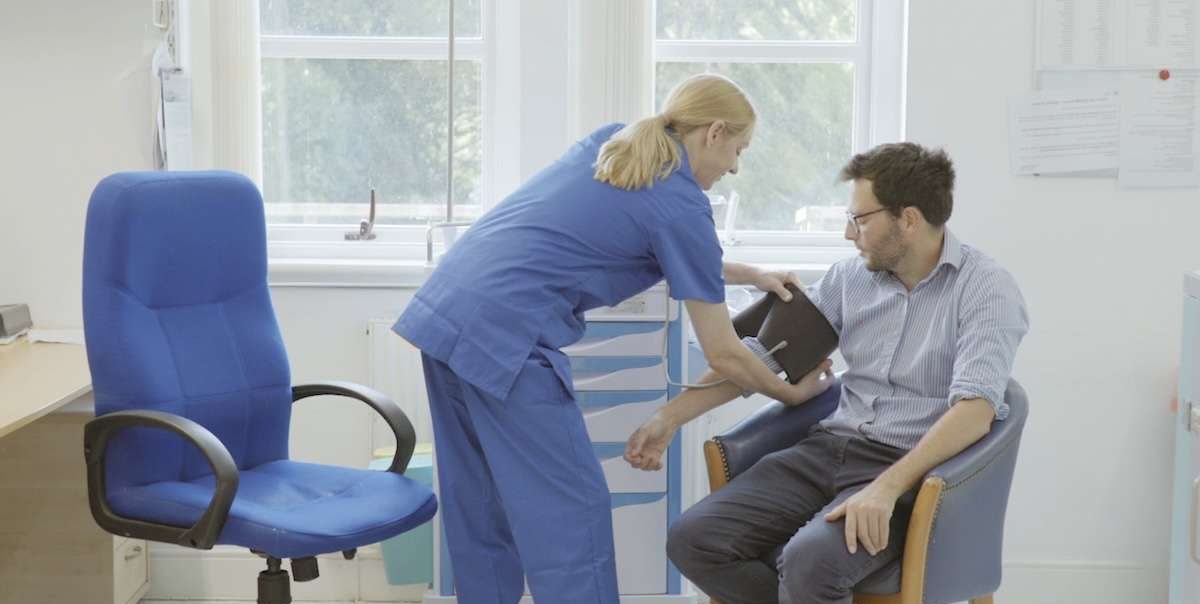
Residential Ritalin Detox Treatment
Castle Craig is a leading inpatient detox centre in the UK, specialising in medically managed stimulant withdrawal. We treat patients who are coming off Ritalin and other ADHD medications, offering 24/7 care in a private, tranquil setting in the Scottish Borders, 20 miles south of Edinburgh. Our clinical team also supports those struggling with stimulant addiction and co-occurring conditions such as ADHD. With tailored care plans and 28-day or long-term residential rehab treatment, we take a whole-person approach to recovery in a countryside environment ideal for healing.
This article explains key aspects of medical Ritalin detoxification and stimulant drug withdrawal. We’ll cover topics such as how long it takes to detox from Ritalin, what the stabilisation timeline looks like and what Ritalin withdrawal symptoms to expect. You’ll also find answers to questions like how to detox from ADHD medication safely, the stages of Ritalin withdrawal and whether medications are used during controlled stimulant reduction and detox. To speak confidentially about treatment options or to learn more about Castle Craig’s Ritalin detox centre, call 01721 546 263.
Can You Get Addicted to Ritalin?
Yes, you can become addicted to Ritalin. Although it is a prescription medication typically used to treat attention-deficit hyperactivity disorder (ADHD), Ritalin is a stimulant. It can be misused, especially when taken in higher doses or without medical guidance. Ritalin dependence can develop both physically and psychologically.
In the UK, Ritalin is a brand name for methylphenidate, a controlled drug commonly prescribed for ADHD in both children and adults. Other UK brand names include Concerta XL and Equasym XL. When misused – such as being crushed and snorted or taken in excessive amounts – methylphenidate can lead to stimulant addiction, prompting the need for a medically managed Ritalin detox and rehab. Misuse is often linked to performance enhancement, appetite suppression or recreational use, all of which increase the risk of prescription methylphenidate dependency.
What is Ritalin Detoxification?
Ritalin detoxification is the medical process of safely clearing methylphenidate from a patient’s system. It supports individuals who have developed a dependence on Ritalin or other ADHD medications, helping manage withdrawal symptoms and prepare them for ongoing Ritalin addiction treatment and recovery from stimulant misuse.
Medically withdrawing from Ritalin typically takes place in a structured environment where symptoms can be closely monitored. A clinically managed Ritalin detox may include gradual tapering, psychological support and medication to ease physical and emotional discomfort if required. This controlled stimulant reduction process is often the first stage in a broader inpatient detox programme that addresses both methylphenidate withdrawal and any underlying co-occurring conditions.
What is a Medically Managed Ritalin Detox?
A medically managed Ritalin detox is a supervised process where healthcare professionals help patients safely reduce or stop their use of methylphenidate. It minimises stimulant withdrawal symptoms, monitors physical and mental health and provides medication-assisted support when appropriate.
This type of medical Ritalin detox is typically delivered in a residential rehab setting, where patients benefit from round-the-clock care. Methylphenidate detoxification treatment may include tapering strategies, monitoring for physical symptoms of Ritalin withdrawal and addressing the psychological effects of stopping Ritalin. Medically managed detoxification also reduces relapse risk and supports a smoother transition into full stimulant addiction recovery.

Start Your Recovery at a Residential Rehab Today
Difference Between Medically Managed Ritalin Detox and Medically Supervised Ritalin Detox
Medically managed Ritalin detox provides intensive 24/7 care from a multidisciplinary team, typically within an inpatient rehabilitation setting. It includes structured methylphenidate withdrawal plans, continuous monitoring and the potential use of medications to ease symptoms and stabilise health.
In contrast, medically supervised Ritalin stabilisation may offer less frequent oversight and is often delivered through outpatient detox treatment. While both approaches provide clinical monitoring, a medically managed detox is more appropriate for those with severe Ritalin dependence, co-occurring conditions or complex withdrawal needs. Castle Craig offers medically managed Ritalin detox within our structured inpatient rehab environment.
Free Stimulant Drug Addiction Assessment
Castle Craig offers a free assessment for individuals seeking help with Ritalin addiction. This initial consultation helps us understand your level of stimulant dependence, current health and personal needs so we can offer the most suitable methylphenidate rehab care from the outset.
Following your free Ritalin addiction assessment, we can develop a tailored methylphenidate detox and rehab treatment plan designed to support safe stimulant withdrawal and long-term recovery. Our medically managed detox is included in the overall pricing for inpatient rehab stays. To speak with our admissions staff, call 01721 546 263.
Free Ritalin Addiction Assessment
Taking the first step and asking for help can feel daunting, but our team is here to assist you.
Benefits of Inpatient Residential Ritalin Detox and Withdrawal Treatment
Inpatient Ritalin detox offers numerous benefits for those seeking to stop ADHD medication safely. With clinical supervision, a structured environment and emotional support, patients are better equipped to manage the physical and psychological symptoms of stimulant withdrawal and move toward lasting recovery.
Below are some of the most important benefits of residential prescription stimulant detox, including safe medication tapering, 24/7 medical care, relapse prevention strategies and a structured bridge into ongoing inpatient rehab for Ritalin misuse.
-
Ongoing Clinical Monitoring for Stimulant Medication Withdrawal
Round-the-clock clinical monitoring helps make sure that stimulant medication withdrawal symptoms are safely managed as they emerge. This is especially important for patients with co-occurring disorders or severe Ritalin dependence, as complications can arise during the early prescription stimulant detox stages.
Continuous oversight from medical professionals enables timely adjustments to medication or support plans and helps minimise the risks of Ritalin relapse. Medical teams can respond quickly to any physical or psychological issues, giving patients the highest level of safety during methylphenidate detox.
-
Supportive Residential Environment for ADHD Medication Detox
Inpatient Ritalin detox environments give patients a safe and supportive place to recover, away from triggers and access to prescription medications. A stable, stress-free environment makes it easier to manage cravings and stimulant withdrawal symptoms.
At Castle Craig, we provide a therapeutic, nature-based rehab estate near Edinburgh designed for healing and reflection. Our team helps each patient feel cared for, from Ritalin detox through to rehabilitation, offering the right surroundings for lasting recovery from ADHD medication misuse.
-
Personalised Tapering and Detox for CNS Stimulant Dependence
A tailored tapering schedule is vital when stopping central nervous system (CNS) stimulants like Ritalin. Medical detox plans can vary depending on the dosage, duration of Ritalin use and presence of co-occurring conditions.
Patients undergoing medically managed methylphenidate detox receive tapering support based on their unique history. This approach reduces stimulant withdrawal intensity and promotes more stable outcomes, helping patients transition to prescription medication rehab with improved physical and mental clarity.
-
Mind-Body Care in Withdrawal from Attention Disorder Treatments
Detox from Ritalin often affects both physical and mental well-being. Holistic rehab treatments such as guided relaxation, mindfulness and nutrition therapy can support whole-person healing during stimulant drug withdrawal.
Castle Craig’s multidisciplinary approach integrates psychological and physical health support. We believe in treating the whole person, not just the symptoms of Ritalin withdrawal, offering a mind-body model of care that supports long-term resilience after stopping methylphenidate.
-
Supervised Methylphenidate Detox in a Structured Facility
A supervised medical detox environment is critical for safely withdrawing from Ritalin, especially for those with long-term use or complex stimulant misuse histories. Inpatient methylphenidate detoxification care allows for rapid intervention if symptoms worsen.
A secure stimulant withdrawal facility offers peace of mind for both patients and families. Medical staff can monitor cardiovascular function, mental health and sleep disturbances, providing reassurance during detox from ADHD medication.
-
Reduction of Prescription Stimulants Under Professional Guidance
Stopping Ritalin suddenly can be harmful, especially for patients with high tolerance or long-term use. Gradual reduction helps avoid intense ADHD medication withdrawal effects and allows the body to adjust to lower stimulant levels.
At Castle Craig, we develop safe detox plans for stimulant medications, guided by Consultant Psychiatrists and CNS stimulant addiction experts. Our methodical approach helps to reduce discomfort and supports patients to engage more effectively in the recovery process.
-
Sustainable Aftercare & Relapse Prevention During Early Recovery
After Ritalin stabilisation, the risk of relapse can be high without ongoing support. Inpatient ADHD medication addiction facilities help people prepare for life after medical detoxification treatment by teaching relapse prevention skills and connecting them with continuing aftercare options.
Recovery strategies often include group therapy, individual counselling and support networks that begin during methylphenidate detox. This foundation is key to maintaining motivation and avoiding triggers after discharge.
-
Smooth Transition from Detoxification to Long-Term Ritalin Rehab
Medically managed detox is only the first step in treating Ritalin addiction. For recovery to last, patients often need to continue into comprehensive prescription drug rehabilitation after their initial stimulant withdrawal phase.
Castle Craig offers a seamless path from methylphenidate detox into structured 4-week, 6-week or 12-week ADHD medication rehab treatment. Patients receive counselling, CBT, group support and ongoing care, helping them maintain progress after coming off Ritalin.
Private Prescription ADHD Drug Detox Centre Near Me
For individuals seeking a confidential and medically supported detox from Ritalin or other prescription ADHD medications, there are private withdrawal services available throughout the UK. Below are examples of the types of methylphenidate detox treatment options typically offered by inpatient facilities such as Castle Craig.

Contact Castle Craig Ritalin Detox Centre
Castle Craig is located in Blythe Bridge, West Linton, EH46 7DH. Our inpatient Ritalin detox centre is peacefully situated in the Scottish countryside, just an hour’s drive from Edinburgh. The serene surroundings and therapeutic environment support a focused, distraction-free recovery process from prescription ADHD medication dependence.
Find Us
01721 546 263
info@castlecraig.co.uk
Castle Craig,
West Linton, Edinburgh, United Kingdom, EH46 7DH
We encourage anyone struggling with Ritalin addiction to call us on 01721 546 263 to learn more about our medically managed residential treatment. Our expert team is here to provide safe detox, comprehensive rehabilitation and compassionate support throughout your recovery journey.
-
How to Find a Private Stimulant Medication Detox Centre Near You
Finding a safe and supportive environment to begin Ritalin detox is key to long-term recovery. If you’re searching for private prescription medication withdrawal treatment options in your area, the steps below can help you locate a reputable centre offering medically managed stimulant reduction and detox services.
- Search for “Private Ritalin Detox Near Me” or Include Your Location: Use targeted search terms like “private inpatient Ritalin detox centre near me”, “Ritalin withdrawal clinic in the UK” or “medically managed neurostimulant medication detox UK” to find options in your vicinity.
- Look for Facilities Offering Around-the-Clock Medical Care: A medically managed Ritalin detox should provide 24/7 clinical support to monitor withdrawal symptoms and make stabilisation as safe and comfortable as possible.
- Explore Feedback and Testimonials from Previous Clients: Online reviews and testimonials provide valuable insights into the quality of care, professionalism and environment of an ADHD medication detox centre, which can help you make a more informed decision.
- Enquire About the Specifics of the Methylphenidate Withdrawal Programme: Ask about the Ritalin stabilisation timeline, support for managing psychological effects and whether medication-assisted detox is offered to ease stimulant withdrawal symptoms.
- Get Details on Pricing and Available Payment Plans for Detox: Pricing can vary depending on the facility, length of stay and level of care. Some withdrawal centres offer flexible payment options or financing to support access to medically assisted Ritalin detox treatment.
- Verify Whether Health Insurance Covers Treatment for Stimulant Detox: Contact your provider to see if your health insurance policy covers inpatient withdrawal care for Ritalin or other ADHD medications.
Find Out About Prescription Drug Detox Treatment
Castle Craig offers free ADHD medication and Ritalin addiction assessments as part of our admissions process. This initial step allows our team to understand your medical history, current usage and withdrawal risk, so we can create the safest and most appropriate treatment plan for detoxing from Ritalin and related stimulant medications.
We provide structured 4-week, 6-week and 12-week residential rehabilitation plans, which can include a medically managed Ritalin detox phase followed by comprehensive therapy. Our inpatient services are designed to help patients stabilise physically, address co-occurring conditions and build a strong foundation for long-term recovery from prescription drug dependence. Call 01721 546 263 for more information.
Signs, Symptoms and Effects of Ritalin Withdrawal & Detoxification
Ritalin withdrawal can vary in intensity depending on the level of use and whether a medically managed stimulant detoxification is provided. Below are some of the common signs, symptoms and effects individuals may experience when withdrawing from Ritalin or other methylphenidate-based ADHD medications. This is not an exhaustive list, but it highlights the most frequently reported issues.
-
Early Signs of Methylphenidate Withdrawal
Early methylphenidate withdrawal symptoms often appear within 24-72 hours after stopping Ritalin and may be mild but disruptive.
- Fatigue and excessive sleepiness: The body compensates for the absence of methylphenidate by increasing the need for rest and sleep.
- Increased appetite: Stimulant suppression of hunger reverses, leading to sudden and noticeable spikes in food intake.
- Mood swings and irritability: Emotional regulation becomes harder without stimulant support, often triggering frustration and low mood.
- Difficulty concentrating: Focus and mental clarity are commonly reduced during the initial detox period from Ritalin.
- Cravings for medication: A strong desire to use Ritalin again is typical as the brain adjusts to its absence.
-
Moderate to Severe Symptoms of Ritalin Withdrawal Syndrome
Moderate to severe symptoms can arise within the first few days of Ritalin withdrawal and may persist for one to two weeks without medical detox.
- Depression and anxiety: The brain’s dopamine imbalance can lead to low mood and increased anxiety symptoms.
- Strong drug cravings: Urges to use Ritalin intensify, making relapse more likely without clinical support.
- Difficulty staying alert: Mental fog and slowed responses are common as stimulant effects wear off.
- Restlessness and agitation: Many patients report feeling physically uncomfortable or emotionally unsettled during this stage.
- Slowed thinking and speech: Processing speed may temporarily decline, leading to sluggish conversations or reduced comprehension.
-
Psychological Effects of Neurostimulant Medication Withdrawal
Neurostimulant withdrawal symptoms can emerge early but often extend into longer-term recovery without appropriate Ritalin detox treatment.
- Mood swings and irritability: Fluctuating emotions may persist as brain chemistry stabilises after methylphenidate withdrawal.
- Difficulty concentrating: Attention issues can remain an ongoing challenge without therapeutic intervention.
- Feelings of hopelessness: Loss of motivation or purpose may set in during stimulant detoxification.
- Increased anxiety or panic attacks: Anxiety can increase sharply, especially in those with pre-existing mental health issues.
- Emotional numbness or detachment: Some individuals feel emotionally flat or disconnected in early recovery stages.
-
Physical Signs and Symptoms During Prescription ADHD Drug Detox
Physical symptoms tend to peak during the first few days of ADHD drug detox and taper off with proper support.
- Fatigue and lethargy: Reduced stimulation leads to persistent tiredness and a lack of physical energy.
- Increased appetite: Hunger returns more strongly once stimulant effects on appetite control wear off.
- Headaches: Changes in dopamine and blood pressure can trigger frequent tension headaches.
- Muscle aches or cramps: General discomfort and muscle tension may occur as the body adjusts.
- Tremors or shaking: Mild tremors may appear, especially during the first few days of stimulant withdrawal.
-
Long-Term Effects Without Proper Ritalin Detoxification Support
Without medically managed Ritalin detox and continuing care, some withdrawal effects can last weeks or even months.
- Cognitive difficulties and memory problems: Individuals may struggle with short-term memory or decision-making after methylphenidate detox.
- Mood instability and depression: Lingering emotional issues may persist without appropriate rehab support.
- Persistent fatigue and low energy: Chronic tiredness can affect motivation and daily functioning.
- Ongoing sleep disturbances: Irregular sleep patterns may continue long after Ritalin use has stopped.
- Risk of relapse without adequate care: The chance of returning to drug use is higher without structured stimulant detox and rehab support.

Medications Used for Ritalin Detoxification
Not everyone going through Ritalin detox will require medication. Whether medications are used depends on the severity of the stimulant dependency, the presence of co-occurring mental health conditions and the person’s physical health.
Below are some common medications and supplements that may be used to support the methylphenidate detox process. All prescription drugs listed must be used under the guidance of a qualified medical professional to manage risk, prevent complications and support safe stimulant withdrawal.
- Clonazepam (reduces withdrawal anxiety and seizures): A benzodiazepine that helps manage heightened anxiety, agitation or seizures that may occur during stimulant withdrawal. Due to its potential for dependence, it must be carefully administered.
- Baclofen (helps ease muscle tension and reduce cravings): A muscle relaxant that may also help dampen drug cravings. It is generally used short term to support physical comfort during early detox from methylphenidate.
- Propranolol (manages increased heart rate and blood pressure during withdrawal): A beta-blocker that can reduce cardiovascular symptoms such as palpitations or tremors, which are common during Ritalin withdrawal.
- Gabapentin (supports nerve calming and reduces withdrawal-related discomfort): Often used to relieve nerve pain and reduce agitation, gabapentin may help manage anxiety and promote more stable moods during CNS stimulant detox. However, this medication can lead to dependency over time, so it must only be prescribed and monitored by a medical professional.
- Trazodone (used to improve sleep quality during detox): An antidepressant commonly prescribed off-label for insomnia, trazodone supports more restful sleep during the early stages of ADHD medication withdrawal.
- Valerian root (natural supplement to help with sleep and relaxation): A herbal remedy that may offer mild calming effects and support better sleep. It is sometimes used alongside clinical care for additional comfort.
- Hydroxyzine (antihistamine to manage anxiety and promote calmness): This non-habit-forming antihistamine has sedative properties and is often used short-term to reduce anxiety and help with relaxation.
- Melatonin (supports circadian rhythm regulation and sleep improvement): A natural hormone supplement that helps regulate sleep-wake cycles and can support improved rest during detox from stimulant medications.
At Castle Craig, our approach to the use of withdrawal medications for Ritalin addiction is conducted with the highest level of responsibility so that they do not result in a new dependency. We understand that this may be a concern for some patients, and we are here to assure you that stimulant detox medicines are prescribed only when clinically necessary and are closely managed under the care of our Consultant Psychiatrist and trained medical staff.
Our goal is to alleviate Ritalin withdrawal symptoms safely while focusing on your overall recovery and the goal of abstinence. By using evidence-based protocols and regularly assessing your progress, we only use prescription drug detox medications as a short-term tool to support your transition into sobriety, always prioritising your long-term health, well-being and abstinence.

Contact Castle Craig Today
If you’re considering medically managed stimulant detox, Castle Craig’s team is here to guide you through the admissions process. Our residential detox centre in the Scottish Borders offers a safe, private and clinically led environment for individuals seeking recovery from prescription drug dependence, including ADHD medication like Ritalin.
Does Health and Medical Insurance Cover Methylphenidate Detoxification Treatment?
Yes, in many cases, health or medical insurance can cover detoxification treatment for Ritalin (methylphenidate) dependence. However, coverage varies depending on your provider, the details of your policy and whether stimulant withdrawal is deemed medically necessary. Always check directly with your insurance company to confirm eligibility.
If your insurer approves medical withdrawal treatment and authorises it at our facility, Castle Craig does accept private health insurance. We work with a range of major UK insurance providers and can help you understand your options. Contact us to discuss your situation or ask questions about insured admission.
How Much Does Residential Ritalin Detox Cost?
In the UK, a standalone Ritalin detox typically costs between £1,000 and £6,000 for a 7-10 day stay. However, medical stimulant withdrawal is most effective when followed by longer prescription drug rehabilitation with a structured treatment programme. Within a residential space, Ritalin detoxification costs can range from £650 to £1,500 per day, or approximately £4,500 to £10,000 per week.
Costs may vary depending on your personal care requirements and the overall length of your methylphenidate withdrawal treatment. To learn more about our pricing and explore 4-week, 6-week and 12-week treatment plans that include a medically managed Ritalin detox, call Castle Craig on 01721 546 263.
ADHD Medication Detox Timeline and How Long It Takes
Ritalin detox is usually the first stage of a comprehensive rehab journey for methylphenidate dependence. While stimulant detoxing helps manage physical ADHD medication withdrawal symptoms, it’s only one part of recovery. Below is a general guide to how long medical stabilisation from Ritalin might take, but completing a full prescription drug rehab treatment plan is often recommended after your initial assessment with a healthcare professional.
-
Stage 1: Early Withdrawal Symptoms (6–12 Hours After Last Dose)
During the first 6 to 12 hours after stopping Ritalin, individuals often experience the initial wave of stimulant withdrawal symptoms. Early effects tend to be mild but uncomfortable, and can include fatigue, irritability and a noticeable drop in focus or motivation as the ADHD medication leaves the bloodstream.
This stage may also include increased appetite, difficulty sleeping and low mood. Because Ritalin is a stimulant, the sudden removal can lead to a temporary “crash” effect. Clinical monitoring during this period is helpful to manage emerging symptoms and assess whether medication-assisted Ritalin detox might be needed for a safer experience.
-
Stage 2: Peak Ritalin Withdrawal Symptoms (24–72 Hours)
The second stage, typically from 24 to 72 hours after the last dose, is when Ritalin withdrawal symptoms usually peak. This is often the most intense part of the stimulant detox process and is when structured support and medical oversight are most important.
Individuals may experience strong ADHD prescription drug cravings, depression, anxiety, agitation and severe fatigue. Sleep disturbances, slowed thinking, and emotional instability are also common. Medically managed Ritalin detox can reduce the severity of these symptoms and provide reassurance in a safe, secure environment.
-
Stage 3: Subsiding Symptoms and Stabilisation (3–7 Days)
By days three to seven, many symptoms begin to subside as the body and brain adjust to functioning without Ritalin. Energy levels may slowly improve, mood stabilises, and cravings often lessen with continued support and therapeutic input.
This phase is important for preparing the patient to transition into the next stage of ADHD medication addiction treatment. A comprehensive Ritalin rehab plan may include therapy, behavioural interventions and aftercare planning. While symptoms lessen, lingering fatigue or mood swings may still occur, highlighting the importance of inpatient methylphenidate detox and a structured recovery environment.

Related Guides on Medically Managed Residential Detox
Detox Centre | Inpatient Detox | Alcohol | Drugs | Cocaine | Heroin | Crystal Meth | Valium | Tramadol | Benzodiazepines | Xanax | Codeine | Opioid | Ecstasy | Morphine | Amphetamine | Cannabis
Inpatient Stimulant Drug Detox Treatment Intake Process
Before beginning medical detox, the intake process at Castle Craig assesses your physical and psychological dependence on stimulant medication like Ritalin. We also explore underlying factors such as ADHD, stress or other mental health concerns that may contribute to methylphenidate misuse. This allows us to build a treatment plan that suits your individual needs.
- Private Initial Consultation and Evaluation of Ritalin Use: A confidential discussion with our admissions team to understand your medication history, reasons for use and any associated challenges.
- Medical Assessment of Detox Admission Eligibility: A doctor-led evaluation to determine if you are suitable for inpatient Ritalin withdrawal care, factoring in physical health and co-occurring conditions.
- Discussing Payment Options or Securing Insurance Authorisation: We’ll guide you through pricing and Ritalin detox treatment durations.
- Admission Process and Introduction to Residential Detox: Once approved, you’ll be welcomed into our residential stimulant withdrawal centre, shown around and supported in settling into your private stabilisation room.
- Continuous Medical Monitoring and Discharge Preparation: Our clinical team will monitor your stimulant detox progress, update your care plan and help prepare you for the next stage of your recovery.
Questions About Ritalin Detox Treatment?
Contact us to discuss your treatment needs with a licensed clinician.
Find Out About Our Prescription Drug Detox Treatment
Castle Craig offers medically managed Ritalin discontinuation in our private, 11-bed, onsite detoxification centre. With 24/7 medical care, we help people safely withdraw from ADHD medications like Ritalin in a secure and therapeutic environment. Our detox team includes doctors, nurses and therapists experienced in prescription stimulant dependence.
We tailor each care plan to your specific needs. For those with co-occurring ADHD and Ritalin addiction, we offer dual diagnosis treatment that addresses both conditions simultaneously. To learn more about our prescription drug detox services and how we can help, call Castle Craig today on 01721 546 263.
Free Ritalin Addiction Assessment
Compassionate, expertly delivered evidence-based practices and a patient-centred approach are at the heart of our treatment model. Request a call-back from one of our professionals on any day of the week.
-
Statistics on Ritalin Misuse in the UK
- From April 2023 to March 2024, approximately 280,000 patients in England were prescribed central nervous system stimulants, including methylphenidate (Ritalin), marking an 18 % increase year on year. Nearly 3 million CNS stimulant prescriptions were dispensed during that period.
- In the same period, methylphenidate prescriptions increased by 15 %, totalling around 1.53 million items in England, reflecting a significant national rise in Ritalin use.
- A 2024 review found that patients with co-occurring substance use disorders or psychiatric conditions were more likely to misuse and abuse methylphenidate, often through non-oral routes or higher than recommended doses. Misuse was associated with psychosis, gastrointestinal complications and worsening psychiatric symptoms.
- Data from NHS Business Services revealed that CNS stimulants and ADHD medications cost the NHS £104 million in 2022/23, with half spent on methylphenidate – reflecting significant demand and the need for safe prescription management.
- A UK primary care cohort study (2000–2018) found that 0.2 % of the population received at least two prescriptions per year for ADHD medication without having a recorded ADHD diagnosis, indicating potential off‑label use or misuse of stimulants such as methylphenidate.